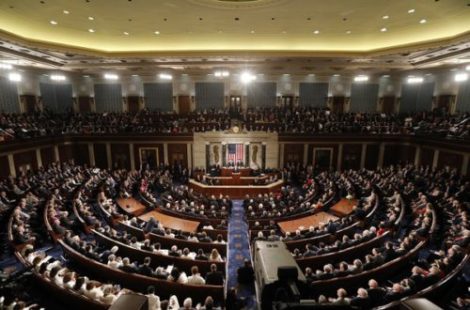State medical marijuana programs have again been protected by the U.S. Congress despite a request by Attorney General Jeff Sessions that the protections be removed (see Jeff Sessions Letter). Congress and the President signed off on the fiscal year 2018 omnibus funding legislation which keeps medical marijuana protection in place through September 30, 2018.
Rep. Earl Blumenauer, co-chair of the Congressional Cannabis Caucus, said:
“While I’m glad that our medical marijuana protections are included, there is nothing to celebrate since Congress only maintained the status quo. These protections have been law since 2014. This matter should be settled once and for all. Poll after poll shows that the majority of Americans, across every party, strongly favor the right to use medical marijuana.”
“Instead, Attorney General Jeff Sessions is doubling down on the failed War on Drugs and Republican leadership in Congress—led by Chairman Pete Sessions—is stonewalling. They’re ignoring the will of the American people by blocking protections for state adult-use laws and cannabis banking. They even refused our veterans access to lifesaving medicine.”
The 2018 omnibus funding legislation extends the Rohrabacher-Blumenauer Amendment (Rep. Dana Rohrabacher, R-California, and Rep. Earl Blumenauer, D-Oregon) which prohibits the use of federal funds to prevent certain States from implementing their own State laws that authorize the use, distribution, possession, or cultivation of medical marijuana. That language was initially passed by Congress in 2014 as the Rohrabacher-Farr Amendment (H.Amdt.748) and is now known as the Rohrabacher-Blumenauer Amendment.
Because the provision is included as part of a Congressional spending package and does not explicitly amend the US Controlled Substances Act, members must re-authorize the amendment annually. This is the ninth time the amendment has been temporarily extended by Congress.
The Rohrabacher-Blumenauer Amendment was supported by a bipartisan group letter to House and Senate leadership from 66 Congress members including Rep. Dana Rohrabacher and Rep. Earl Blumenauer.
Also in support of the Rohrabacher-Blumenauer Amendment was a letter from California State Treasurer John Chiang. Read more about state cannabis law at California Cannabis Law.
In August, 2016, the Ninth Circuit Court of Appeals in United States v. McIntosh, 833 F.3d 1163, 1177 (9th Cir. 2016), unanimously ruled that the Rohrabacher-Farr Amendment bars the federal government from taking legal action against any individual involved in medical marijuana related activity absent evidence that the defendant is in clear violation of state law.
(Update: On May 17, 2018, for the first time ever, the US House Appropriations Committee approved inclusion of the Rohrabacher-Farr amendment in the Commerce, Justice, Science (CJS) appropriations bill for fiscal year 2019. On June 12, the US Senate Appropriations Committee also approved a base CJS appropriations bill with the Rohrabacher-Farr amendment included.)
Contact us to learn more about California state or local cannabis regulations, cannabis regulatory compliance, and cannabis litigation.

